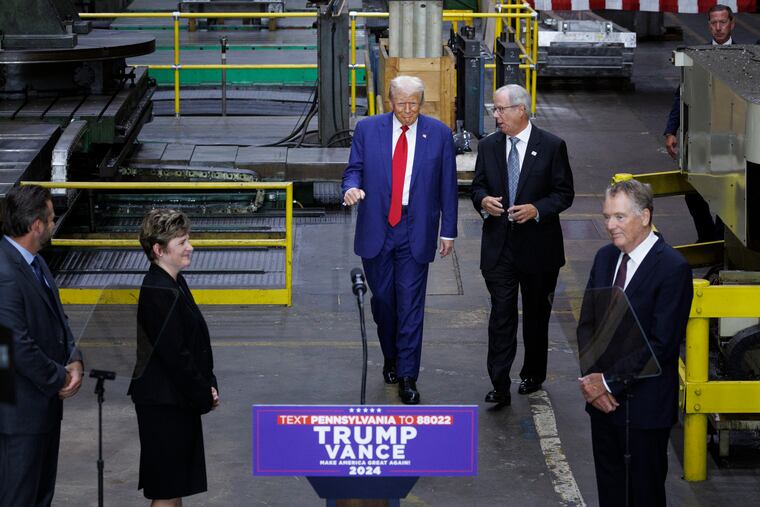Pennsylvania’s uneven economic recovery could help Trump here
Former President Donald Trump and Vice President Kamala Harris are competing to win the trust of Pennsylvania voters who have said the economy is their top issue.

Pennsylvania’s economy hasn’t seen the same post-pandemic rebound as other parts of the country, and that could create a problem for Vice President Kamala Harris as she seeks to win the trust of the state’s voters, who have said the economy is their top issue.
The United States has added roughly 19 million jobs in the last four years, but Pennsylvania, like other northern “Blue Wall” states, struggled to maintain economic vitality before the pandemic and to bounce back after the fact. Fifty-one of the state’s 67 counties lost jobs between 2019 and 2023, the New York Times reported.
There were 1,783 more jobs in Philadelphia in 2023 than in 2019, a 0.3% increase, according to the New York Times, but Pennsylvania has largely come up short on the construction and manufacturing boom that other states have seen. Allegheny County is the only major county in the country where total employment has plummeted by more than 5% since 2019.
In certain instances, Pennsylvania’s post-pandemic recovery has also lagged behind other swing states. For example, hospitality jobs have been slower to return to Pennsylvania and Michigan than in Sun Belt states such as Georgia and Arizona, where pandemic restrictions were lifted earlier.
The uneven economic rebound could have significant electoral implications with voters nationwide, and in Pennsylvania specifically, with voters telling pollsters that they worry about the economy and that the issue is more important to them than any other. While voters had said they trusted former President Donald Trump more with the economy in polling done before Harris ascended to the top of the ticket, the latest polls show Trump’s edge slipping as Harris makes gains — and both candidates have aggressively courted voters on the issue with high-profile and starkly different policy proposals.
In the last month, Harris has rolled out several economic proposals, vowing to ban grocery price gouging, provide a subsidy for first-time homebuyers, make a $40 billion investment in affordable housing, and expand the child tax credit.
Trump has promised to lower inflation via executive order, increase U.S. oil drilling, and reduce energy prices. The former president is also expected to revive his 2017 tax cuts and implement a tariff of at least 10% on imported goods.
Both candidates’ economic proposals have implications for Philadelphia, where poverty levels and rates of joblessness are high.
The Trump campaign has been especially adamant about highlighting economic issues on the campaign trail in Pennsylvania recently. Trump visited a manufacturing facility in York last week to speak on inflation and energy, while Sen. JD Vance, the Republican vice presidential candidate, visited DiSorb Systems in North Philly for remarks about manufacturing and energy.
Vance spoke on similar topics when he visited Team Hardinger, a trucking, brokerage, and warehousing company in Erie on Wednesday afternoon.
“We have got the best natural resources. ... We’ve got the best history. We’ve got the best traditions. We have got the best workers right here in Pennsylvania. The only thing [that is] broken about this country is its leadership,” Vance said.